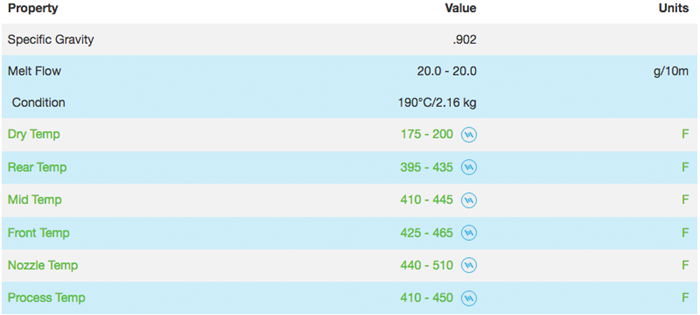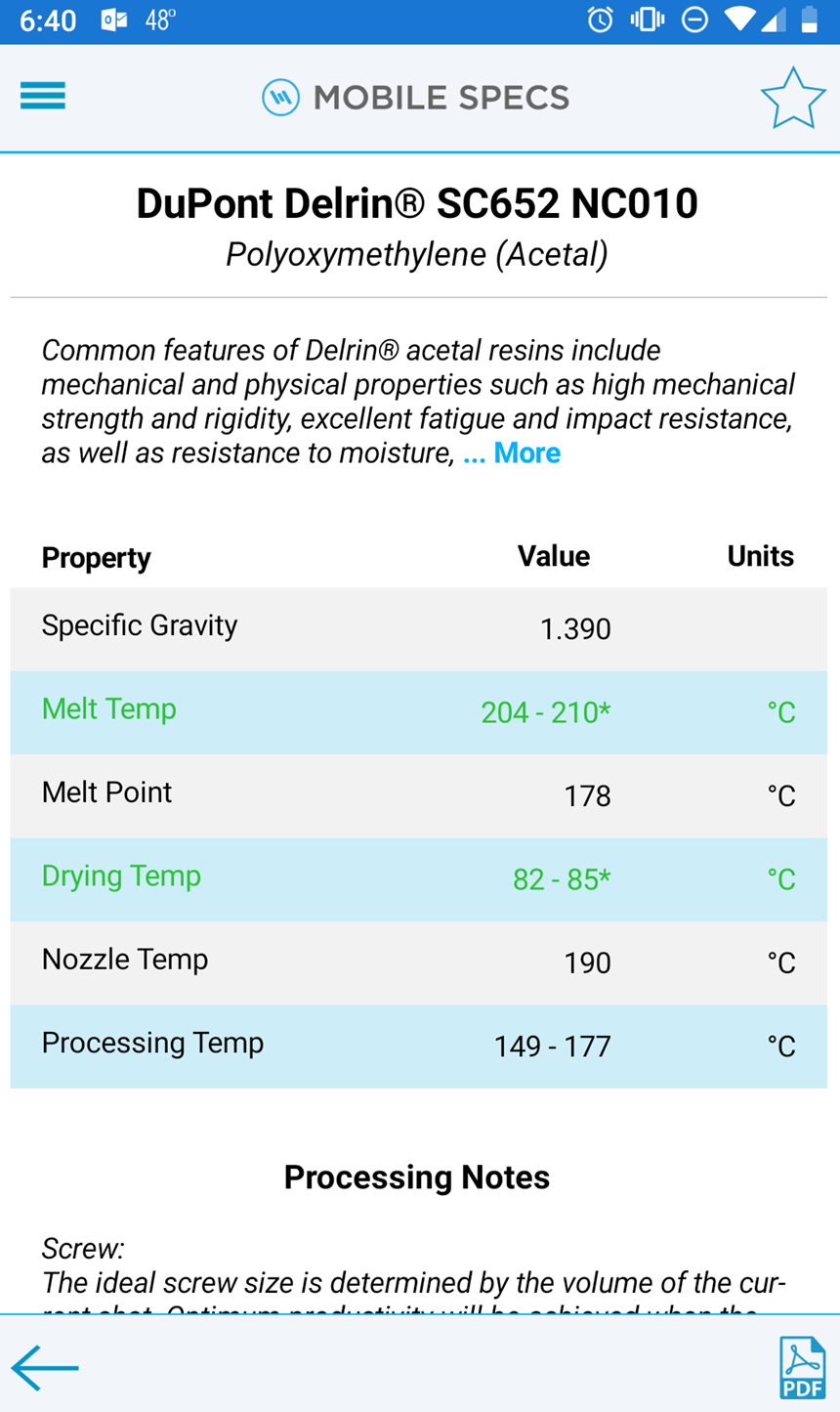Machine Learning Helps Software Fill Key Gaps in Plastics Data Sheets
MobileSpecs LLC has boosted the breadth and depth of its materials database for injection molders by applying a machine learning algorithm to predict missing information for key processing parameters, including data points like drying temperature.
On Feb. 19, the updated version of the program went live, marking one of several substantial updates the database has undergone since its launch in June 2017. MobileSpecs is now available as an app or on the web, with both versions continuously updated and synched. Earlier this year, the company also changed its business model for the database, shifting from a paid subscription service to a free version, giving users full access to all the data on more than 22,000 commercially available materials from more than 100 resin manufacturers.
“You can type in product; you can type in grade; you can type in manufacturer; or you can type in a family or resins,” explains Doug Kenik, MobileSpecs’ Managing Director, “and materials just start popping up so you can quickly narrow down to what material you want.”
More recently, MobileSpecs allowed users that are logged in to “favorite” materials, giving them quick access to those select materials in the future. The company also added full PDFs of the original data sheets to the database, allowing users to see the published specifications of the manufacturer.
After the initial release, Kenik said MobileSpecs heard early on from users of the database who valued the aggregation of material information but did encounter some gaps. “We took a look at the data we had and leveraged these new machine learning techniques to start filling in the missing gaps in the datasheets we were reporting,” Kenik indicated. Shortly after starting the work, Kenik said MobileSpecs found the algorithm to be effective in giving molders data they could not find in the datasheet.
“The machine learning algorithm is trying to find patterns in the reported data to make predictions for materials for which the data sheet doesn’t have those particular values,” Kenik said. “So it’s looking for commonalities and trends between the materials themselves.”
MobileSpecs reports that of the 22,000 materials in its database, 80% have fewer than half of the traditionally reported processing parameters. By utilizing the machine learning algorithms, the company says it’s been able to identify trends in the data that allow it to fill in missing values which are not reported or unknown. Processors should have confidence in these predictions, according to Mobile Specs, since the average error for predicted data values is approximately 5%. MobileSpecs’ data team expects that for 95% of the materials, the true value will be within 15% of the algorithm’s predicted value.
The company offers up drying temperatures as an example of the algorithm’s success at finding and filling holes. In the original database, there were drying temperatures for about 52% of the 22,000 materials. After applying machine learning, around 75% the materials had drying temperatures.
On April 2, MobileSpecs will offer a webinar on Predicting Processing Parameters Using Machine Learning.
Related Content
-
The Effects of Temperature
The polymers we work with follow the same principles as the body: the hotter the environment becomes, the less performance we can expect.
-
Resin Prices Still Dropping
This downward trajectory is expected to continue, primarily due to slowed demand, lower feedstock costs and adequate-to-ample supplies.
-
New Entrant Heartland Polymers Stepping up as Reliable Supplier
Heartland Polymers’ new Alberta, Canada facility will produce 525 KTA propylene and 525 KTA polypropylene. It is expected to stabilize supply chains across the continent.













.png;maxWidth=300;quality=90)



